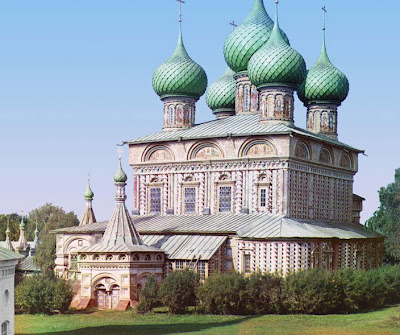 "The Gathering of Manna"
"The Gathering of Manna"Artist: Bacchiacca
I have long loved the Numbers passage that is one of
the choices appointed for this morning's first reading. Moses declares, "Would that all the LORD's people were prophets, and that the LORD would put his spirit on them!"
What an enlightened view for a religious leader and dignitary. The clericalism so prevalent today often simply supposes that the role of the laity is to "Pray, pay and obey." And so we see documents drawn up regarding our recent "unpleasantness" in the Anglican Communion that do not mention the laity or the laity's contribution at all - as if bishops alone are the Church.
How are we to be prophets, anyway?
When a relatively young priest inquired of a saintly retired priest if there were anything he would do differently if he could start over, this was the answer:
“If I had my priesthood to live over again,” he said, “I would be a gentler with people the next time. I would console more and challenge more carefully. I was one of those people who was taught and who deeply believed that only the full truth can set us free, that we owe it to people to challenge them with the truth, in season and out. I believed that and did it for most of the years of my ministry. And I was a good priest, I lived for others and never once betrayed in any real way my vows and my commitment. But now that I am older, I regret some of what I did. I regret that sometimes I was too hard on people! I meant it well, I was sincere, but I think that sometimes I ended up laying added burdens on people when they were already carrying enough pain. If I were just beginning as a priest, I would be gentler, I would spend my energies more trying to lift pain from people. People are in a lot of pain. They need us, first of all, to help them with that!”
The younger priest comments with this astonishing sentence:
We will comfort the world, and it will be comforted, when we show it that God sees its heart with the eyes of the heart, that God feels for it more than it feels for itself, that God never feels frightened by the assertions of human freedom, that God always opens another door when we close one, that God is not put off by all the times when we are too weak to do what is best, that God understands our complexity, our weaknesses, our anger, our lusts, our jealousies, and our despair, that God never stops loving us even when we put ourselves in hell, and that God descends into all the hells we create, stands in inside of our muddled, wounded, and guilty hearts and breathes out peace.
"Breathes out peace."
I'm going to focus today on breathing out peace. Will you join me?
(The above passages are from a powerful relection by Fr. Ron Rolheiser entitled "Prophecy - Challenge and Comfort".)



























